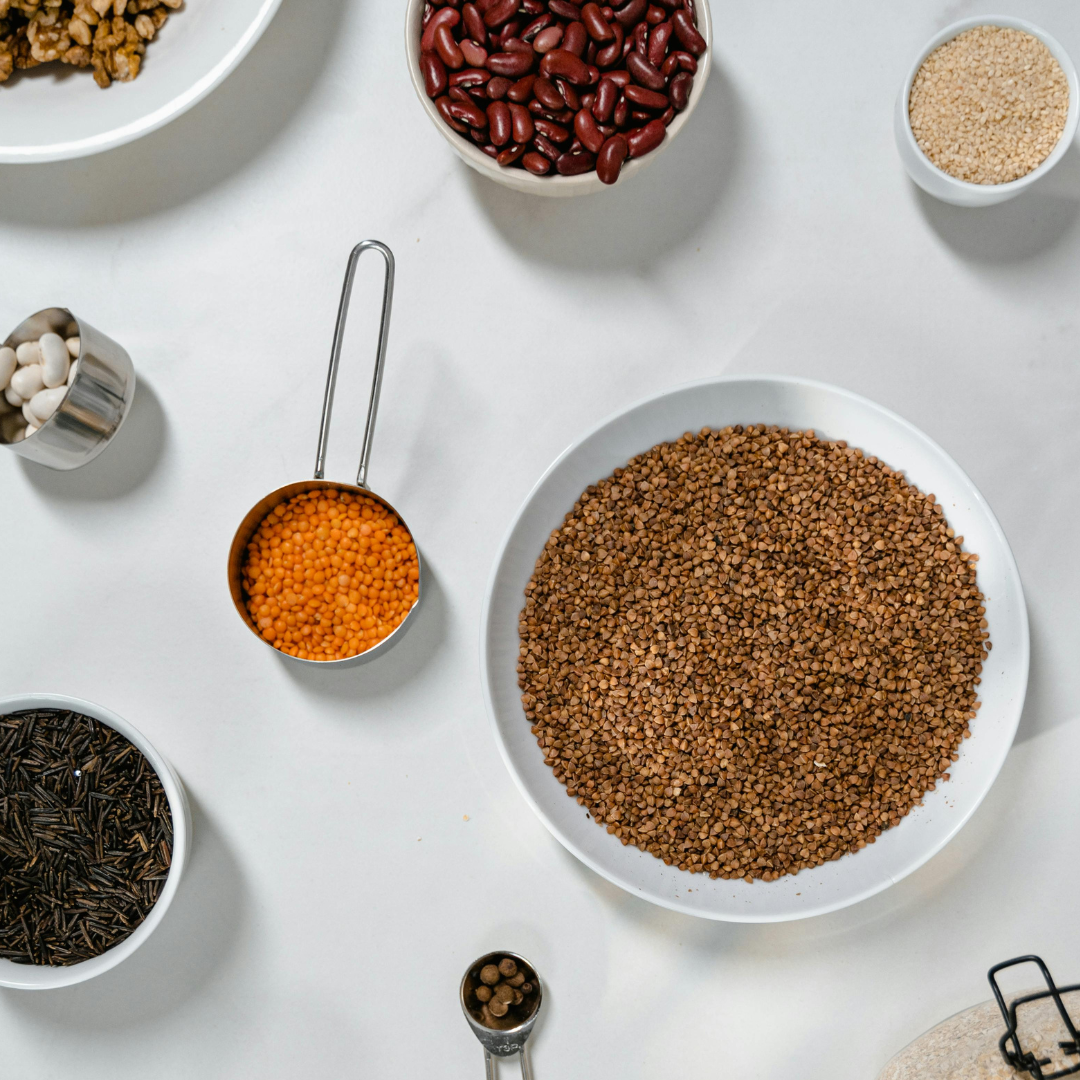What Is Kimchi? Gut Health Benefits, Fermentation, and How to Eat It

Kimchi is more than just a spicy side dish, it's a fermented food with centuries of tradition and growing popularity thanks to its gut-friendly properties. From aiding digestion to supporting your immune system, this Korean staple is packed with nutrients and live cultures. In this blog, we explore what kimchi is, why it’s considered beneficial for gut health, and how to incorporate it into your meals. Plus, we’ll show you how to make it at home with this easy kimchi recipe.
What is kimchi?
- A traditional Korean dish made by fermenting vegetables, typically napa cabbage and radish, with garlic, ginger, salt, and red chili flakes.
- Often includes fish sauce, spring onions, and gochugaru (Korean red pepper flakes).
- Fermented for days or weeks to develop flavour and grow beneficial bacteria.
Why is kimchi good for gut health?
Contains live cultures
- Fermentation encourages growth of lactic acid bacteria like Lactobacillus, known for their role in gut health.
- These live cultures can support your gut microbiome, which has been linked to digestion, immunity, and even mood.
Supports digestive health
- Kimchi contains fibre from vegetables, which acts as a prebiotic, feeding the good bacteria in your gut.
May reduce inflammation
- Antioxidants from garlic, ginger, and red pepper may contribute to anti-inflammatory effects.
Potential metabolic benefits
- Some studies suggest kimchi may improve cholesterol levels, insulin sensitivity, and body composition; however, further research is needed before researchers can prove a direct link in humans.
What are the nutritional benefits of kimchi?
- Low in calories and high in nutrients.
- Rich in vitamin C, vitamin K, and B vitamins.
- Contains polyphenols and plant compounds with antioxidant activity.
- Kimchi can be high in salt due to the fermentation process, enjoy in moderation if you are watching your sodium intake.
Is kimchi vegan?
Traditional kimchi may contain fish sauce or fermented shrimp. However, you can easily make a plant-based version (like our homemade kimchi recipe) that’s 100% vegan and just as delicious.
How to eat kimchi
- Add to rice bowls, stir-fries, or noodle dishes.
- Mix into omelettes or pancakes (like Korean kimchi jeon).
- Use as a topping for avocado toast or grain salads.
- Enjoy as a gut-healthy side dish with any meal.
How to make kimchi at home
Want to try it yourself? It’s easier than you think. Try our easy vegan kimchi recipe and enjoy the benefits of fermentation in your own kitchen.
Final thoughts:
Kimchi is a powerhouse of flavour and gut-friendly bacteria, making it a simple yet powerful addition to a balanced diet. Whether you're new to fermentation or already a fan, kimchi is a delicious way to support your gut health. Ready to try it? Learn how to make kimchi at home with our step-by-step recipe.
Your well-being is our top priority. While we take great pride in our expertise in gut health and overall wellness, we understand that every gut is unique. The content we provide is not meant to diagnose, treat, cure, or prevent any illness, or replace the advice of your GP. We strongly encourage you to consult with a healthcare professional if you have any health concerns. Rest assured, we are here to support you throughout your journey, so you are never alone. Our in-house nutritionists will always be here to support you on your journey to optimal gut health.



